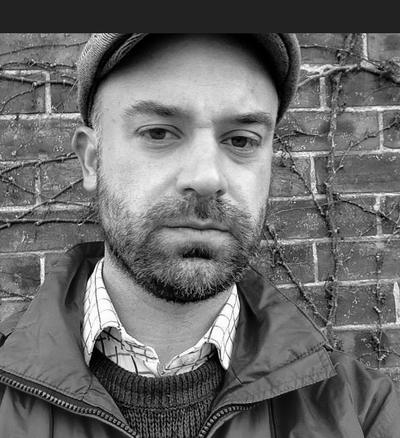The Alfred Gustav Press, Series NineteenReviewed by Carl Watts
|
|
John Wall Barger: Dying in Dharamsala
Claudia Coutu Radmore: On Fogo Russell Thornton: Aftermath Michael Trussler: Light's Alibi My first magazine subscription was Nintendo Power; the most recent was Poetry. But this doesn’t count the several poetry-related publications I’m receiving at any given time in return for writing or as a consolation prize after entering a contest (or the ones I sporadically look through in the library’s current-periodicals section). Contemporary poetry has a strange relationship with subscriptions; with most of its readership seeming to consist of those also plying their trade in the not-exactly-lucrative poetry universe, the circulation of its publications may not reflect readership as much as the number of people submitting their work. Sure, the arrangement is more participatory than The New Yorker’s business model, or even more of a game—maybe I haven’t come so far from my Nintendo Power days—but it’s also something of a closed system.
Alfred Gustav Press has managed to find a unique place for itself in this ecosystem. Founded by poet David Zieroth, every year it publishes two series, each consisting of three chapbooks and a holm—a brief offering (or “small island in the river,” according to its colophon) by a poet who has previously published with the press. Each series must be ordered in advance, and the press prints as many copies as there are subscribers. The four-title packages invoke sameness and difference, the beige of each cover adorned only with the author’s signature and a small, consistently idiosyncratic two-colour “icon” drawn by Zieroth. Series Nineteen features John Wall Barger’s Dying in Dharamsala, Claudia Coutu Radmore’s On Fogo, and Michael Trussler’s Light’s Alibi, accompanied by the eight-page holm Aftermath, by Russel Thornton (whose Stopping the Waves appeared in the previous series). Each of the three chapbooks engages with experiences of travel, with Barger in India’s Himachal Pradesh, Radmore having travelled to the island of Fogo, off Newfoundland, and Trussler reflecting on journeys to the Kunsthistorisches Museum in Vienna and the site of Mauthausen, a Nazi concentration camp. Dying in Dharamsala purports to show us the poet, “rattled and heartsick” and “attempting not to look away.” Barger has a way with line breaks, which here add a formal element to his visual conceit. The eponymous poem that opens the chapbook tweaks the familiar line-as-single-breath poetics to construct a delusion in which “Luiz lies upon his many mats”: |

